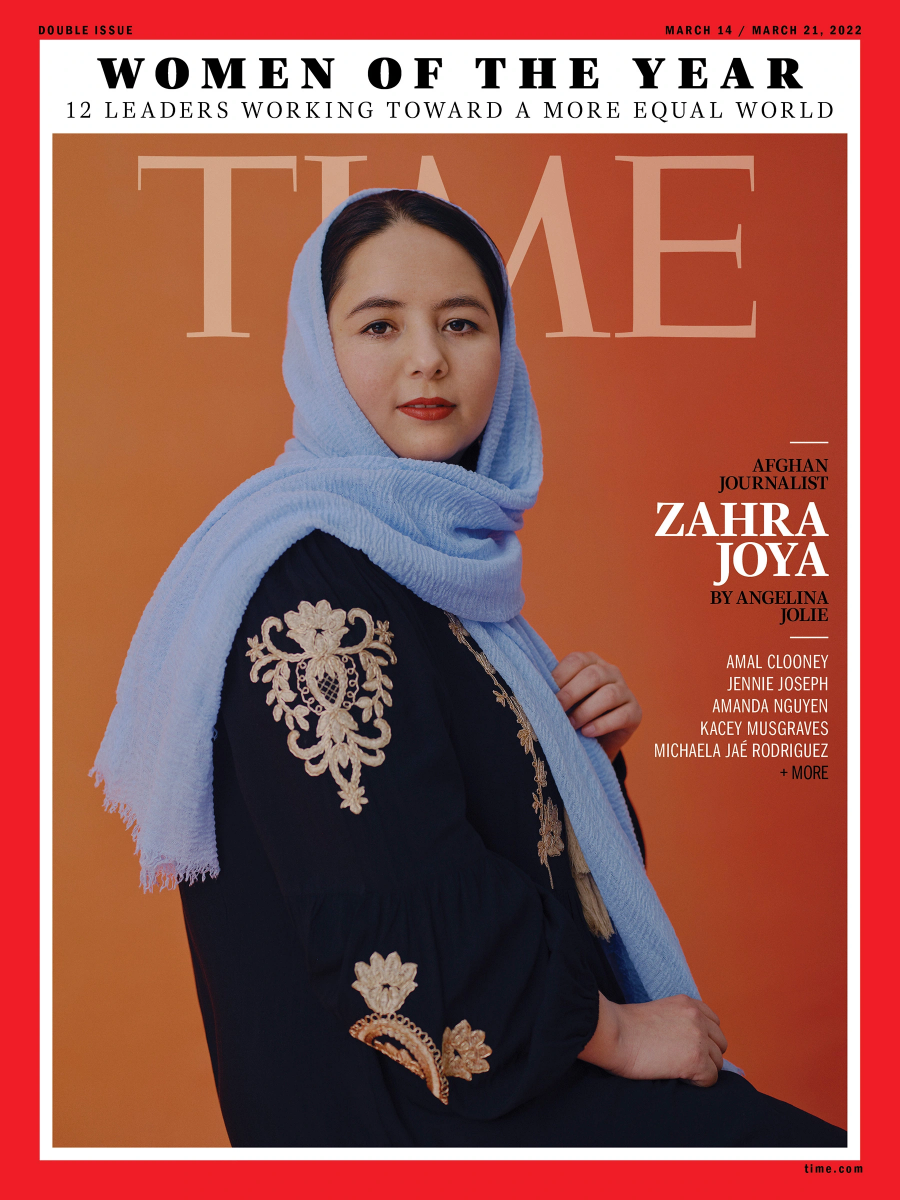This month, Zahra Joya, who founded Rukhshana Media in Afghanistan in 2020, was named one of TIME’s Women of the Year. In today’s newsletter, The Fuller Project’s Trip Eggert speaks with Joya about what it takes to report in defiance of the Taliban.
The Fuller Project is a proud partner of Rukhshana Media. Our newsrooms began working together to report on Afghan women’s lives for a global audience months before the U.S. withdrew from Afghanistan.
“The stories published by Rukhshana Media and The Fuller Project,” says Joya, “were the stories of women’s hidden pains.” They were reported by Afghan women whose journalism makes a vital contribution to our understanding of life on the ground.
These reporters work under threat of death, detention and physical harm — as well as the severe restrictions the Taliban has imposed on all women in Afghanistan, like denying health care to women without a male chaperone present, as covered by our contributing reporter Zahra Nader.
There were 1,190 women employed in the media in Kabul before the city fell to the Taliban. As of late December, just 320 were still working. It has never been more urgent to bring Afghan women’s stories to global attention.
Zahra, what did it take to start Rukhshana Media? What does it take to run it today — are your journalists in the country?
In the capitalist world we live in, starting and running a news outlet requires money. I established Rukhshana Media with very little. I worked myself as an employee in Kabul Municipality and paid some journalists with my salary. I started with a team that had the motivation and passion to work as journalists.
Now, with freedom of expression, the media, women’s freedom and their rights severely restricted and under attack, Rukhshana Media needs financial support to hire more female journalists and reach a wider audience. Some of our brave colleagues are still working on the ground in Afghanistan, but now they cannot work in public. All media and freedom of expression in Afghanistan must be supported.
What is your day-to-day life like right now?
I wake up every morning with the stress of insecurity and panic that currently prevails in Afghanistan. First, I check my phone to see if anything has happened to my colleagues and family members who are there. Then I receive reports and news from my colleagues and edit and publish them. I have been miles away from Afghanistan for about seven months, but every day I’m mentally still there. Some days I can’t imagine how I should manage all that Rukhshana Media is doing. But when I think of all the women who have been placed under house arrest, I really enjoy what we do in our small newsroom. With this rare opportunity, we have the responsibility to work very hard to raise and amplify those women’s voices.
Q: What stories are missing in Western media? How can Western media organizations raise up local Afghan reporting and women’s stories?
A: The Western media publishes stories that are important and interesting to the West. And in many cases, Western journalists have limited local access. If you want to tell the story of Afghan women, each facing different pains — domestic violence or forced marriage, poverty, or sexual harassment — to tell those different stories, local journalists are essential and effective.
The piece you wrote for us describes your heartbreak as the country you grew up in fell to the Taliban, and you realized what you were losing as a woman and as a journalist. What drove you to keep working, even when your life was in danger?
A: Journalism is a mission. The media and the reporters are the voice of the people, especially the marginalized — like women. When Kabul fell, I felt more responsibility to be a voice for Afghan women.
We’re hearing about similar struggles from Ukrainian journalists right now, as their cities are attacked by Russian forces. What messages do you have for Ukrainian women journalists today?
My colleagues and I stand in solidarity with Ukrainian journalists. Migration is painful and sad — starting life from zero is not easy. Stay strong, and tell the stories of your country to people across the world. Tell us about your people’s pain.



